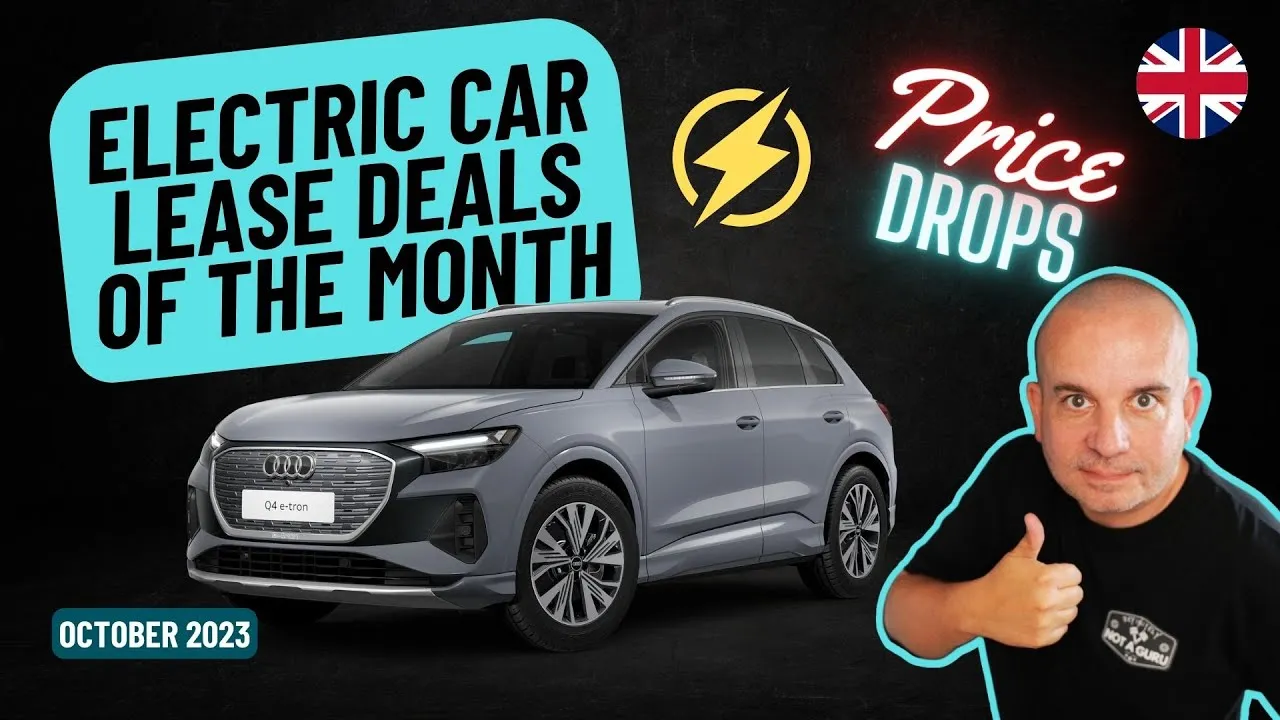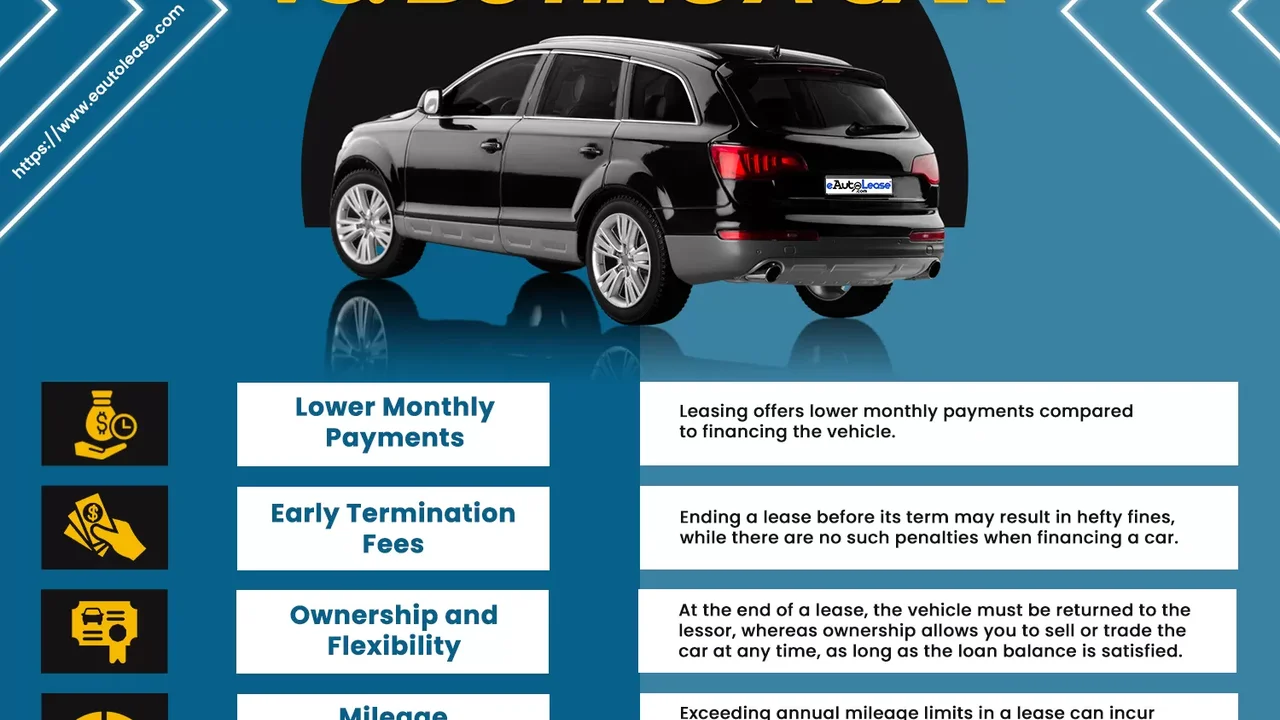Lease Deals on Electric Vehicles: Savings and Incentives

Understanding Electric Vehicle Lease Deals and Incentives
Hey there, future EV driver! Thinking about going electric but not quite ready to commit to buying? Leasing an electric vehicle (EV) might be just the ticket. It lets you try out the latest tech, enjoy lower monthly payments, and avoid long-term battery degradation worries. But before you dive in, let's break down what EV lease deals and incentives are all about. It's not always as straightforward as it seems.
Basically, leasing is like renting a car for a set period, usually two or three years. You pay a monthly fee, and at the end of the lease, you return the car. The beauty of leasing an EV is that you can often snag some sweet deals, thanks to government incentives and manufacturer rebates aimed at boosting EV adoption. These incentives can significantly lower your monthly payments or reduce the amount you need to put down upfront.
But hold your horses! It's crucial to understand the fine print. Lease deals often come with mileage restrictions, and exceeding those limits can result in hefty fees. You're also responsible for maintaining the vehicle in good condition. So, before you sign on the dotted line, do your homework and make sure the deal aligns with your driving habits and lifestyle.
Maximizing Savings Finding the Best EV Lease Incentives
Okay, so you're interested in saving some serious cash on an EV lease. Awesome! The good news is there are plenty of incentives out there. The trick is knowing where to look and how to qualify. Let's explore some common types of EV lease incentives:
- Federal Tax Credits: The U.S. federal government offers tax credits for eligible EVs, and these credits can sometimes be applied to leases, indirectly lowering your monthly payments. However, the credit usually goes to the leasing company, who *should* pass the savings on to you in the form of a lower monthly payment. Don't be afraid to ask about this!
- State and Local Rebates: Many states and local governments offer their own EV rebates and incentives. These can range from a few hundred to several thousand dollars, depending on your location and the specific EV model. Check your state's energy office or environmental protection agency website for details.
- Manufacturer Incentives: Automakers often offer their own lease incentives to promote EV adoption. These can include cash rebates, low APRs (Annual Percentage Rate), and special lease terms. Keep an eye out for these deals on manufacturer websites and at dealerships.
- Utility Company Rebates: Some utility companies offer rebates for EV owners, particularly those who install home charging stations. These rebates can help offset the cost of installing a Level 2 charger, which is essential for convenient home charging.
Pro Tip: Stacking incentives is the name of the game! You might be able to combine federal, state, and manufacturer incentives to get the best possible deal. Just be sure to read the eligibility requirements carefully and understand any restrictions.
Top Electric Vehicle Lease Options Product Recommendations
Alright, let's get down to brass tacks. Which EVs are offering the hottest lease deals right now? Keep in mind that incentives and availability can change rapidly, so always double-check with your local dealers for the most up-to-date information. Here are a few solid contenders:
Tesla Model 3 Leasing The King of EVs
The Vibe: The Tesla Model 3 remains a top choice for many EV enthusiasts. It offers a compelling combination of performance, range, and technology. Plus, Tesla's Supercharger network makes long-distance travel a breeze.
Lease Perks: Tesla often offers competitive lease deals on the Model 3, although incentives can fluctuate. Keep an eye out for promotions that include free Supercharging or other perks.
Ideal Use Cases: Daily commutes, road trips, tech-savvy drivers who appreciate a minimalist interior and advanced features.
Price (Lease): Lease prices can vary widely depending on the trim level, options, and current incentives. Expect to pay anywhere from $400 to $700+ per month. Be sure to factor in insurance and charging costs.
Nissan LEAF Leasing Affordable Electric Mobility
The Vibe: The Nissan LEAF is a more budget-friendly EV option that's perfect for urban driving. It's known for its comfortable ride and practical hatchback design.
Lease Perks: Nissan frequently offers aggressive lease deals on the LEAF, making it one of the most affordable EVs to lease. You might find deals with little to no money down.
Ideal Use Cases: City driving, short commutes, budget-conscious drivers who prioritize affordability over long range.
Price (Lease): You can often lease a Nissan LEAF for under $300 per month, making it a very attractive option for those on a tight budget.
Hyundai Kona Electric Leasing Compact and Fun
The Vibe: The Hyundai Kona Electric is a stylish and sporty subcompact SUV with a surprisingly long range. It's fun to drive and packed with features.
Lease Perks: Hyundai often offers competitive lease deals on the Kona Electric, particularly in states with strong EV incentives. The Kona Electric also generally qualifies for the full $7500 federal tax credit, passed along by the leasing company.
Ideal Use Cases: Urban and suburban driving, drivers who want a stylish and practical EV with good range.
Price (Lease): Lease prices for the Kona Electric typically range from $350 to $550 per month, depending on the trim level and incentives.
Chevrolet Bolt EV Leasing A Value-Packed EV
The Vibe: The Chevy Bolt EV offers a great balance of range, practicality, and affordability. It's a solid all-around EV that's perfect for daily driving.
Lease Perks: Chevrolet has historically offered attractive lease deals on the Bolt EV, often with significant discounts and incentives.
Ideal Use Cases: Daily commutes, errands, drivers who want a practical and affordable EV with good range.
Price (Lease): You can sometimes find lease deals on the Bolt EV for under $350 per month, making it a compelling value proposition.
Comparing EV Lease Options Key Considerations
So, you've got a few EV models in mind. How do you decide which one is right for you? Here are some key factors to consider when comparing EV lease options:
- Range: How far do you typically drive on a daily basis? Make sure the EV's range meets your needs, especially if you don't have convenient access to charging.
- Charging: Where will you be charging your EV? Home charging is the most convenient option, but you'll need to install a Level 2 charger. Public charging is also available, but it can be more expensive and time-consuming.
- Monthly Payment: What's your budget? Don't just focus on the monthly payment; also consider the down payment, taxes, and fees.
- Mileage Allowance: How many miles do you typically drive per year? Choose a lease with a mileage allowance that meets your needs. Exceeding the mileage limit can result in expensive penalties.
- Features: What features are important to you? Consider things like driver-assistance technologies, infotainment systems, and comfort features.
- Residual Value: This is an estimate of what the car will be worth at the end of the lease. A higher residual value means lower monthly payments, all else being equal.
- Money Factor: This is similar to an interest rate for a loan. A lower money factor means lower monthly payments.
Understanding EV Lease Terms and Conditions Avoid Surprises
Before you sign any lease agreement, it's crucial to understand the terms and conditions. Here are a few things to watch out for:
- Excess Wear and Tear: Lease agreements typically define what constitutes "excess wear and tear." You'll be responsible for paying for any damage that exceeds these limits.
- Early Termination Fees: If you need to end your lease early, you'll likely have to pay a hefty fee.
- Purchase Option: Some lease agreements give you the option to purchase the vehicle at the end of the lease term. However, the purchase price might not be a good deal, especially if the vehicle's market value has declined.
- Gap Insurance: Gap insurance covers the difference between the vehicle's market value and the amount you owe on the lease if the vehicle is stolen or totaled. It's a good idea to have gap insurance, especially for EVs, which can depreciate quickly.
Leasing vs Buying an EV Which is Right For You
Leasing isn't always the best option for everyone. Here's a quick comparison of leasing vs. buying an EV:
Leasing Pros:
- Lower monthly payments
- Access to the latest technology
- No long-term commitment
- Avoid depreciation
Leasing Cons:
- Mileage restrictions
- Responsible for wear and tear
- No equity in the vehicle
- Potentially higher total cost over time
Buying Pros:
- No mileage restrictions
- Ownership of the vehicle
- Ability to customize the vehicle
- Potential for resale value
Buying Cons:
- Higher monthly payments
- Responsible for maintenance and repairs
- Depreciation
- Long-term commitment
Ultimately, the best option depends on your individual needs and circumstances. If you value flexibility and want to experience the latest EV technology without a long-term commitment, leasing might be a good choice. If you prefer ownership and want the freedom to drive as much as you want, buying might be a better fit.
Tips for Negotiating an Electric Vehicle Lease Deal
Negotiating a lease deal can be intimidating, but it doesn't have to be. Here are a few tips to help you get the best possible deal:
- Do your research: Know the market value of the EV you're interested in and the current lease incentives.
- Shop around: Get quotes from multiple dealerships.
- Negotiate the price of the vehicle: Even though you're leasing, you can still negotiate the price of the vehicle. The lower the price, the lower your monthly payments will be.
- Negotiate the money factor: The money factor is negotiable, just like an interest rate.
- Don't be afraid to walk away: If you're not happy with the deal, be prepared to walk away. There are plenty of other dealerships out there.
- Read the fine print: Before you sign anything, read the lease agreement carefully and make sure you understand all the terms and conditions.
The Future of Electric Vehicle Leasing Trends to Watch
The EV market is constantly evolving, and so is the world of EV leasing. Here are a few trends to watch:
- Increased availability of EVs: As more automakers introduce EVs, the availability of lease deals will likely increase.
- More flexible lease terms: Some automakers are starting to offer more flexible lease terms, such as shorter lease durations and higher mileage allowances.
- Subscription services: Subscription services are becoming increasingly popular, offering an alternative to traditional leasing. These services typically include insurance, maintenance, and charging in a single monthly fee.
- Battery health guarantees: Some automakers are offering battery health guarantees, which protect lessees from unexpected battery degradation.
Charging Considerations for Leased Electric Vehicles
One of the biggest differences between owning a gasoline car and leasing an EV is charging. It's important to understand your charging options and how they'll impact your daily life.
- Home Charging: The most convenient option. Requires installation of a Level 2 charger (240V outlet). Can take several hours to fully charge the battery.
- Public Charging: Available at various locations (shopping centers, workplaces, etc.). Can be faster than home charging, but more expensive.
- DC Fast Charging: The fastest charging option. Can add significant range in a short amount of time. More expensive than Level 2 charging.
Consider your daily driving needs and charging habits when choosing an EV and lease deal. If you primarily drive short distances, home charging might be sufficient. If you frequently take long trips, access to DC fast charging is essential.
Insurance Considerations for Leased Electric Vehicles
Insuring a leased EV is similar to insuring a gasoline car, but there are a few key differences.
- Higher Insurance Premiums: EVs often have higher insurance premiums than gasoline cars due to their higher repair costs and the cost of replacing the battery.
- Gap Insurance: As mentioned earlier, gap insurance is essential for leased EVs.
- Coverage for Charging Equipment: Make sure your insurance policy covers damage to your home charging equipment.
Shop around for insurance quotes from multiple companies to find the best rates. Be sure to disclose that you're leasing the vehicle and that it's an EV.
Maintenance and Service for Leased Electric Vehicles
EVs generally require less maintenance than gasoline cars, but they still need regular servicing.
- Tire Rotations: Regular tire rotations are essential to ensure even wear and prolong the life of your tires.
- Brake Inspections: EVs use regenerative braking, which reduces wear on the brake pads. However, it's still important to have your brakes inspected regularly.
- Battery Health Checks: Some automakers recommend periodic battery health checks to monitor the condition of the battery.
- Fluid Checks: EVs still have fluids that need to be checked and topped off, such as coolant and brake fluid.
Follow the manufacturer's recommended maintenance schedule to keep your leased EV in good condition and avoid any penalties for excess wear and tear.
Returning Your Leased Electric Vehicle What to Expect
As your lease term comes to an end, it's time to prepare for the return of your EV.
- Schedule an Inspection: Before returning the vehicle, schedule an inspection to assess any damage or excess wear and tear.
- Repair Any Damage: If there's any damage that exceeds the lease agreement's limits, you'll need to have it repaired.
- Clean the Vehicle: Give the vehicle a thorough cleaning, inside and out.
- Gather All Documents: Make sure you have all the necessary documents, such as the lease agreement, registration, and insurance card.
- Return the Vehicle to the Dealership: Return the vehicle to the dealership on or before the lease expiration date.
Following these steps will help ensure a smooth and hassle-free lease return.
Long-Term Cost of Ownership for Leased Electric Vehicles
While leasing offers lower monthly payments, it's important to consider the long-term cost of ownership. Over the course of several leases, you might end up paying more than if you had purchased a vehicle outright.
Factors to consider include:
- Total Lease Payments: Add up all the monthly payments, down payment, and fees.
- Mileage Penalties: Factor in any potential mileage penalties.
- Excess Wear and Tear Charges: Consider the potential cost of excess wear and tear charges.
- Opportunity Cost: Consider the opportunity cost of not owning the vehicle and building equity.
Compare the long-term cost of leasing with the cost of buying to determine which option is the most financially sound for you.
Environmental Benefits of Leasing Electric Vehicles
Leasing an EV is not only a smart financial decision but also an environmentally responsible one.
- Reduced Emissions: EVs produce zero tailpipe emissions, which helps reduce air pollution and greenhouse gas emissions.
- Energy Efficiency: EVs are more energy-efficient than gasoline cars, which means they use less energy to travel the same distance.
- Sustainable Transportation: By leasing an EV, you're contributing to a more sustainable transportation system.
Make a positive impact on the environment by choosing to lease an electric vehicle.
:max_bytes(150000):strip_icc()/277019-baked-pork-chops-with-cream-of-mushroom-soup-DDMFS-beauty-4x3-BG-7505-5762b731cf30447d9cbbbbbf387beafa.jpg)






